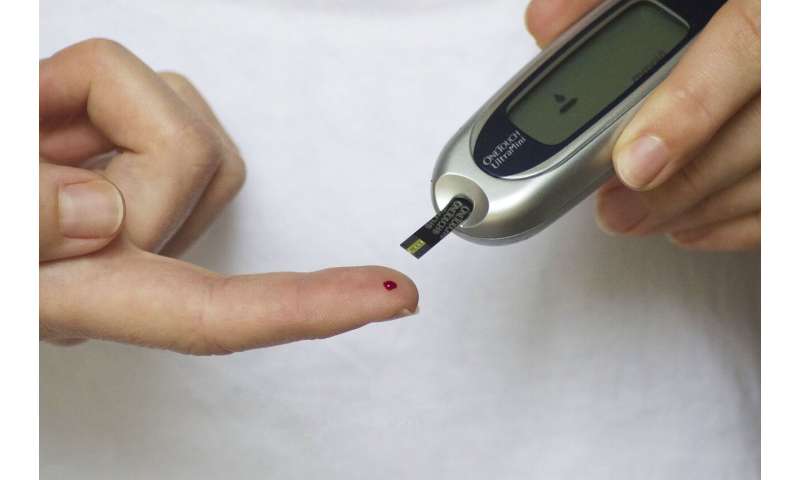
The higher mortality associated with poorly controlled type 1 and type 2 diabetes could produce a loss of 6 million life years in the UK, according to a study by Manchester data scientists.
The model devised by the team at The University of Manchester, Salford Royal NHS foundation trust and Res Consortium also calculated the impact of the disease on life expectancy.
Using National Diabetes Audit and Office of National Statistics mortality data from 2015, the team found that 1.7million life years are lost for Type 1 and 4.3 million for Type 2 Diabetes each year.
However, given the recent rapid growth in particularly Type 2 Diabetes, and COVID-19 related diabetes deaths the figures, say the team, are now likely to be significantly higher.
In an example calculated by the team, the average age of someone with Type 1 Diabetes is 42.8 years old, and that person has a life expectancy of 32.6 more years. That compares with someone of the same age without type 1 diabetes who can expect to live an average additional 40.2 years.
And the average age of someone with Type 2 diabetes is 65.4 years old; that person could expect to live an additional 18.6 more years. That, they say, compares with 20.3 years in an equivalent in the general population without the condition.
The team also estimated that Type 1 and type 2 Diabetes patients with poor blood glucose control of greater than 58mmol/mol will lose around 100 life days.
The consequences in terms of lost life years on women with diabetes are greater than for men according to the team’s model, though more work, they say, is required to understand why.
The study is published in Cardiovascular Endocrinology and Metabolism.
Dr. Adrian Heald is from The University of Manchester and a Consultant in Diabetes and Endocrinology at Salford Royal.
He said: “This study highlights the importance of early effective engagement and long-term management in patients with Diabetes.
“And it’s especially important as numbers of people diagnosed with diabetes are on the rise and in light of the link between diabetes and COVID-19 deaths.
He added: “We hope our linking of poor glycaemic control to expected mortality in such a quantitative way will be helpful to both clinicians and people with diabetes
“Knowing the risks of poor control of their blood sugars will bring home its importance of and will support them in their efforts to achieve their targets.”
The team acknowledge the paper has used national level mortality data rather than GP practice level data.
And the impact of other factors such as smoking, inactivity, overweight, hypertension and taking of statins will be the subject of future study
Source: Read Full Article
